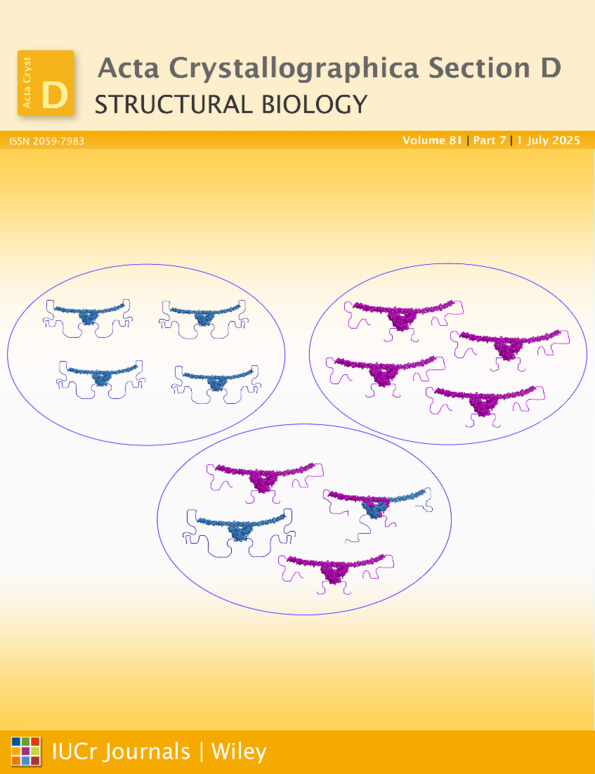Automated production of small-molecule dictionaries for use in crystallographic refinements
Abstract
Many macromolecules are now being studied crystallographically in complexes with a range of ligands and other associated molecules. It is necessary to have templates describing the expected geometry of such molecules before refinement and model building can be carried out. This paper describes a method for generating templates beginning from the SMILES description of the molecule, the final format of the molecular template being based on the mmCIF definitions for chemical composition. Additionally, the program SMILE2DICT, which converts the SMILES string to a more extended format, is described. The description details the input required, the output produced and how the program relates to attempts to automate the procedure of model building for crystallographic refinement. Examples of input to and output from the program are given.




